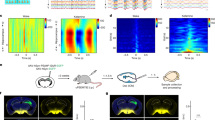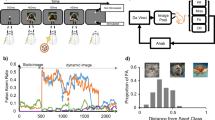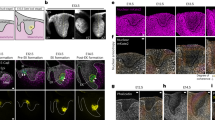Abstract
WHEN a paramecium collides with an obstacle, it reverses the direction of the effective stroke of its cilia, swims backwards for a while, and, with one or more repetitions of this ‘ciliary reversal’ response, avoids the obstacle1. When the medium is disturbed2 or when the posterior part of its body is stimulated mechanically, it swims faster than usual and escapes from the stimulus mainly by increasing the frequency of ciliary beat. The current view of the underlying mechanisms can be summarised as follows3,4. A mechanical stimulus to the anterior end of the animal deforms the cell membrane of this region, increasing the permeability to Ca2+ and causing a depolarisation which further activates the Ca2+-channels in the membrane. Thus, the depolarisation develops regeneratively towards the equilibrium potential of Ca2+. The Ca2+ which has entered the cell acts on some mechanism controlling the direction of ciliary beat to bring about ciliary reversal. On the other hand, a stimulus to the posterior end activates the K+-channels in the membrane, causing hyperpolarisation and an increase in ciliary beat frequency. Although the animal behaves as a mechanoreceptor cell in the early stages of these events, it is not clear which part of the cell transduces the mechanical stimulus to the activation of Ca2+- or K+-channels. We report here the effect of removal of cilia on the electro-physiological responses of paramecium to mechanical as well as some other stimuli.
This is a preview of subscription content, access via your institution
Access options
Subscribe to this journal
Receive 51 print issues and online access
$199.00 per year
only $3.90 per issue
Buy this article
- Purchase on Springer Link
- Instant access to full article PDF
Prices may be subject to local taxes which are calculated during checkout
Similar content being viewed by others
References
Jennings, H. S., Behavior of the Lower Organisms, 47–54 (Columbia University Press, New York, 1906).
Rose, W. Z., Tierpsvchol, 21, 257–278 (1964).
Eckert, R., Science, 176, 473–481 (1972).
Naitoh, Y., Am. Zool., 14, 883–893 (1974).
Kuźnicki, L., Acta Protozool., 1, 177–185 (1963).
Naitoh, Y., and Eckert, R., in Experiments in Physiology and Biochemistry. 5 (edit. by Kerkut, G. A.), 17–31 (Academic, New York, 1972).
Eckert, R., and Naitoh, Y., J. Protozool., 19, 237–243 (1972).
Dunlap, K., Am. Zool., 16, 185 (1976).
Dunlap, K., and Eckert, R., J. Cell Biol, 70, 245a (1976).
Naitoh, Y., and Eckert, R., Z. vergl. Physiol. . 61, 453–472 (1968).
Plattner, H., J. Cell Sci., 18, 257–269 (1975).
Fisher, G., Kaneshiro, E. S., and Peters, P. D., J. Cell Biol, 69, 429–442 (1976).
Tsuchiya, T., and Takahashi, K., J. Protozool. (in the press).
Kennedy, J. R. Jr, and Brittingham, E., J. Ultraxtruct. Res., 22, 530–545 (1968).
Author information
Authors and Affiliations
Rights and permissions
About this article
Cite this article
OGURA, A., TAKAHASHI, K. Artificial deciliation causes loss of calcium-dependent responses in Paramecium. Nature 264, 170–172 (1976). https://doi.org/10.1038/264170a0
Received:
Accepted:
Issue Date:
DOI: https://doi.org/10.1038/264170a0
This article is cited by
-
Mechanoreception in motile flagella of Chlamydomonas
Nature Cell Biology (2011)
-
Photolysis of caged Ca2+ induces trichocyst discharge inParamecium caudatum
Protoplasma (1999)
Comments
By submitting a comment you agree to abide by our Terms and Community Guidelines. If you find something abusive or that does not comply with our terms or guidelines please flag it as inappropriate.



